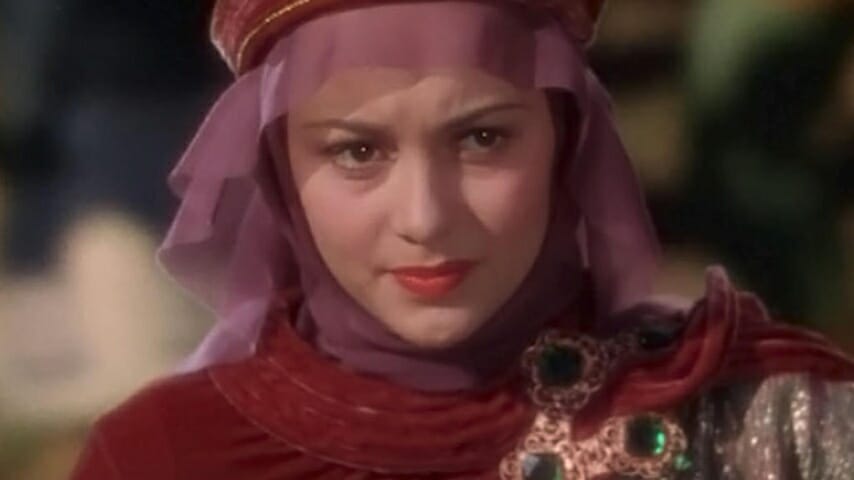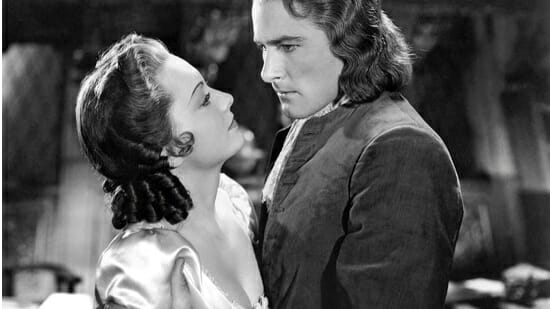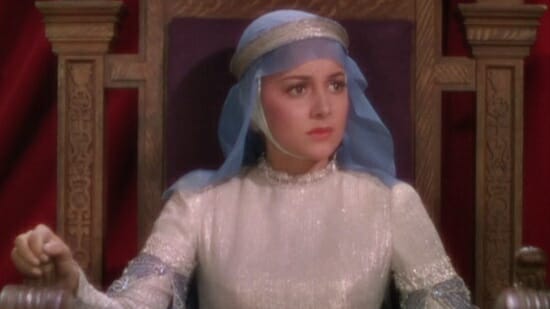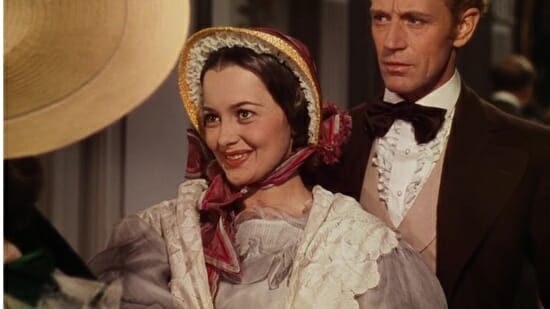Olivia de Havilland Changed the Game in Hollywood
Her films are classics, but her help founding the Screen Actors Guild is her most important influence on the industry.

It’s been said that Olivia de Havilland’s death at 104 heralds a sort of end to the Golden Age of Hollywood. She was the last surviving star of an era marked by the studio system’s tight control over talent and crew. Her films will deservedly be getting another look, from the brilliantly iconic to the extremely problematic. In one way, however, her off-screen legacy in Hollywood is arguably even more important than her on-screen one.
De Havilland, like every big-name actor of her time, was under contract to a major studio, a position that meant her career was tightly controlled. When she became a founding member of the Screen Actors Guild in 1936 (then in its infancy), she began a process that eventually led to a lawsuit against her corporate handlers. It would be one of many major blows against the studio system, and an important victory for labor in Hollywood that’s still invoked today.

De Havilland first hit the silver screen in 1935 in the Warner Bros. production Alibi Ike, a performance that would be emblematic of a lot of her projects for the studio. De Havilland was typecast as the fragile young love interest right from the start, a category she chafed against. In a few short years, she would star in several of the most iconic movies of the studio era. She played Errol Flynn’s love interest in Captain Blood and The Adventures of Robin Hood, and also had a prominent role in a little film called Gone With the Wind.
It must be said that de Havilland was an electric presence in her day, and it’s not hard to see how she quickly commanded respect. When she enters the frame in Captain Blood, it’s like she’s in a completely different movie from her co-stars. Though she named Captain Blood and Robin Hood as two roles she enjoyed during her time with Warner Bros., she said most of those delicate damsel roles didn’t agree with her. She found scant opportunity to do much else at Warner Bros., though. The draconian contracts at the time meant actors couldn’t go in search of other roles without explicit studio approval.
Were this same arrangement to persist today, it would put independent studios in even weaker positions than they already are. A film like, for instance, Uncut Gems, would probably not exist since an actor like Adam Sandler would not have the clout to eventually create his own label (for better or for worse) and then take on the occasional good script.
“I finally began to do interesting work … but always on loan out to another studio,” de Havilland is quoted as saying in Philip Drake’s 2017 book Hollywood and the Law. “So I realized that at Warner Bros., I was never going to have the work that I so much wanted to have. I knew that I had an audience, that people really were interested in my work, and they would go to see a film because I was in it. I couldn’t bear to disappoint them by doing indifferent work on an indifferent film.”
It wasn’t long after her career began that de Havilland started to attend meetings of a fledgling organization called the Screen Actors Guild, and became one of its founding members. The precursor to today’s SAG-AFTRA—the collective bargaining organization that represents film and television actors—was then a somewhat more informal group, and many actors felt like attending it was risky, said de Havilland, who recalled Joan Crawford “knitting industriously” during an early meeting.
“The formation of SAG was a very controversial matter and major stars, though protected in many ways by their contracts, were at risk because these agreements … [had] quite strict provisions regarding behavior offensive to public opinion,” de Havilland said in a 1994 interview. “A major star’s popularity outside the industry could well be diminished by appearing pro-labor in a society still uneasy about unions.”

De Havilland started to decline roles she didn’t want and was suspended by Warner Bros. five times by 1943. That response to pushback from an actor about a role was typical at Warner Bros., de Havilland said. This highlighted a major, unfair provision in studio contracts: de Havilland’s suspensions did not count as time she was spending working, and therefore was not counted toward the period of her contract.
-

-

-

-

-

-

-

-

-

-

-

-

-

-

-

-

-

-

-

-

-

-

-

-

-

-

-

-

-

-

-

-

-

-

-

-

-

-

-

-









































